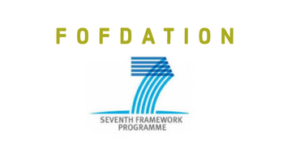The Foundation for the Smart Factory of the Future
Grant agreement ID: 260137
Duration: June 2010 – October 2014
Cordis: https://cordis.europa.eu/project/id/260137
Description
Today’s major challenges for manufacturing companies, operating under productivity pressures, greater product variability and environmental constraints, are clearly identified as global cooperation with multiple supply chain partners, production optimization, and tracking and management of information to meet new requirements like traceability, security, sustainability. These requirements lead to the need for a universal manufacturing information system based on a data exchange standard that allows disparate entities and their associated devices of a manufacturing system to share data seamlessly in a common format. This future digital manufacturing foundation, that represents the brain and knowledge repository of the manufacturing system, will then enable the implementation of the Smart Factory architecture based on a high bandwidth Manufacturing Information Pipeline for data interoperability.
The Smart Factory integration towards real-time networking and adaptive capability also envisions: Optimizing the numerically controlled (NC) machining systems including programmable logic controllers (PLC) through an embedded Supervisory Control and Data Acquisition (SCADA) system Supporting an advanced Manufacturing Execution System (MES) providing not only integrated process automation but also extension of its scope to achieve energy efficiency and sustainability goals as well as waste reduction and e-manufacturing. Reducing product integration, time-to-market costs and resource diagnosis-maintenance costs through a common control and monitoring platform. Implementing homogenous information sources generating data from the whole process, thus achieving information binding and integration from the extended Manufacturing Execution System (MES) to both vertical (innovation) dimension with the Product lifecycle Management (PLM) and horizontal (business) dimension with the Enterprise Resource Planning (ERP) Using STEP and related standards to form an interoperable and scalable solution.
The project will deliver: (a) a proof-of-concept Smart Factory based on an open-architecture foundation allowing the demonstration for selected user case study scenarios providing an instantiation of the generic and standards-oriented framework together with (b) a technology exploitation model supported by a living-lab infrastructure covering the complete product-manufacturing lifecycle.

